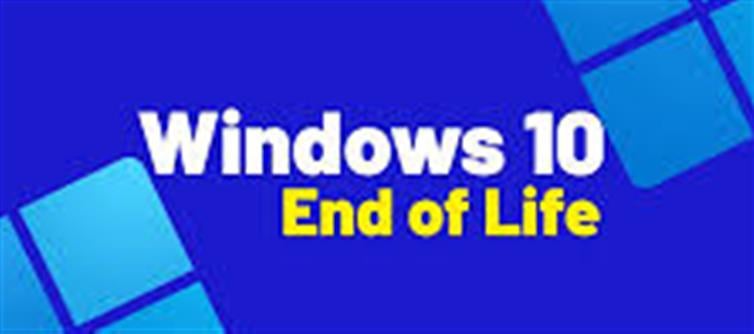
The clock is ticking down on one of the most widely used operating systems in the world. Windows 10, the OS that powers over 1.4 billion devices, will officially reach its end-of-support date on october 14, 2025. But does this mean that these 1.4 billion PCs will become useless? Let’s break down what this means for users and the future of these devices.
1. What Does End of Support Really Mean?
When microsoft ends support for Windows 10, it means that the operating system will no longer receive:
· Security updates: No more patches for vulnerabilities, leaving devices more susceptible to malware, ransomware, and hacking.
· Feature upgrades: New features and updates that improve performance or add functionality will no longer be rolled out.
· Technical support: microsoft will no longer provide help if users face issues or need assistance troubleshooting problems.
Why is this important?
The end of support does not mean that Windows 10 will stop working. However, without regular updates, your PC becomes more vulnerable to cyber threats over time, and you’ll miss out on the latest features and improvements.
2. Will Windows 10 PCs Become Junk?
No, Windows 10 devices won’t become junk overnight. They will still work, but without updates, they will:
· Become more vulnerable to security breaches, which could put your personal data and work at risk.
· Lack new features, making your system feel outdated compared to newer devices running updated operating systems.
· Be incompatible with some modern software and hardware that require the latest security patches and performance upgrades.
3. Upgrade to Windows 11: A Safe Bet for the Future
While Windows 10 will no longer receive support, microsoft is actively encouraging users to upgrade to Windows 11, which will receive full support and regular updates for several years. If your PC meets the hardware requirements for Windows 11, upgrading can extend the life of your device and ensure continued access to security patches and new features.
· What if my PC doesn’t meet the requirements for Windows 11?
If your device is too old or doesn’t meet the upgrade criteria for Windows 11, you’ll need to continue using Windows 10 after support ends or consider upgrading your hardware.
4. Options for Users After october 14, 2025
If you decide not to upgrade to Windows 11, here are some options to consider:
· Switch to a Linux-based operating system: For those who want to continue using older devices, Linux distributions like Ubuntu or Mint are free alternatives that can breathe new life into your PC.
· Upgrade your hardware: If your device can’t support Windows 11, it might be time to invest in a new computer. Modern PCs with Windows 11 are more secure, efficient, and future-proof.
· Continue using Windows 10 without support: While not recommended for security reasons, some users may choose to continue using Windows 10 at their own risk.
5. Will Other microsoft software Continue to Work?
Even though Windows 10 support will end, other microsoft software, like Microsoft Office, Outlook, and OneDrive, will continue to function as usual. However, these services may eventually start phasing out compatibility with older operating systems, pushing users toward newer platforms.
6. Preparing for the Change: What Should You Do Now?
With less than a year remaining before Windows 10 support ends, it’s important to start planning your next steps:
· Check if your device is eligible for Windows 11: Use Microsoft’s PC health Check tool to find out if your PC can run Windows 11.
· Backup your data: Before upgrading or switching systems, ensure that you back up important files to avoid losing them during the transition.
· Consider your options: Decide whether to upgrade to Windows 11, switch to a different OS like Linux, or buy a new PC based on your needs and budget.
Conclusion: Windows 10 is Not Doomed, But It's Time to Plan
The end of support for Windows 10 is a crucial turning point, but it doesn’t mean that your PC will become obsolete. You have time to plan your next move—whether it's upgrading to Windows 11, switching to another OS, or buying a new PC. By staying ahead of the deadline, you can keep your system secure and functional for years to come.
Disclaimer:
The views and opinions expressed in this article are those of the author and do not necessarily reflect the official policy or position of any agency, organization, employer, or company. All information provided is for general informational purposes only. While every effort has been made to ensure accuracy, we make no representations or warranties of any kind, express or implied, about the completeness, reliability, or suitability of the information contained herein. Readers are advised to verify facts and seek professional advice where necessary. Any reliance placed on such information is strictly at the reader’s own risk.
.jpg)




 click and follow Indiaherald WhatsApp channel
click and follow Indiaherald WhatsApp channel